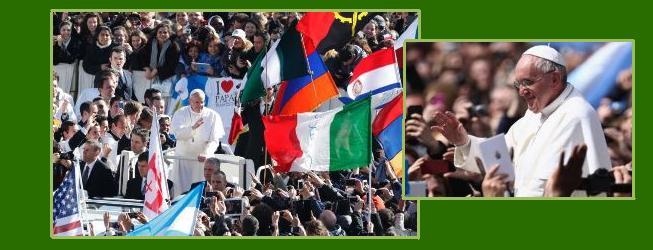source link: http://www.lawrentian.com/?p=564
The freedom of religious doctrine
G. K. Chesterton would have loved Mumford & Sons. If I could only provide one reason for believing that, I’d go with these lyrics from the song “I Will Wait”: “so tame my flesh and fix my eyes/a tethered mind, freed from the lies.” If you’re not familiar with Chesterton or Mumford & Sons, I highly recommend that you look into them.
Chesterton loved the idea of being tethered to truth; I think this love was one of the reasons that he happily embraced the Christian faith, which he called “a truth-telling thing” in his book, Orthodoxy.
He would go on to enter the Catholic Church, which he called “the trysting-place of all the truths in the world” in his essay, “Why I Am a Catholic.” I, like Chesterton, love the idea of being bound to truth by a tether.
It’s not very popular, in my experience, to advocate for tethering oneself in certain areas of belief, especially not on many a modern college campus. To do so is to refuse the alternatives, to declare something absolutely true is to declare the alternatives absolutely false.
I’ve listened to secular friends tell me about “what’s true for them,” and while I think there’s value in hearing out other perspectives, I can’t help but think that this idea of “personal truth” or “individual truth” is silly, as it’s usually inconsistent.
Sure, some questioning of our perception of reality is a long tradition in Western philosophy, but I don’t think that epistemology is what’s really on the table here. It’s usually more a matter of what beliefs are convenient to tether oneself to.
Few people would have a problem with me expressing a firm belief in the existence of trees on the Main Hall green; but if I were to express the same certainty about the moral implications of certain actions, I can imagine getting a very different reaction.
It’s my observation, in a general sense, that many a modern, mostly-secular college student isn’t a big fan of what would be called “doctrine.” The word usually carries traces of religion, often Christianity.
Institutional Christianity, on the whole, still advocates against certain actions that many college students, myself included, are inclined toward, and the Catholic Church is especially tenacious with its teachings on certain issues.
It’s frustrating to be advised against doing something that one finds desirable, and a popular sentiment holds that we should dismiss “doctrine” as old-fashioned and give thanks for our collective “freedom” from that sort of thing.
The trouble with this is that nobody really escapes having doctrine, which we’ll define now as “principles according to which one believes and lives.” Do your beliefs and life line up with certain principles?
If so (and I suspect that they do), you have doctrine. A man or woman might try to say, “I reject doctrine and make my own choices,” but when you look at “his own choices,” you’ll notice that they probably look an awful lot like doctrine.
For example, someone might say, “I don’t care about the old standards; I’m going to have sex with whomever I want to.” If living chastely is following a rule, though, isn’t living promiscuously just following a different rule?
It’s true that a person could be inconstant about his or her principles: He or she might live chastely one month and unchastely the next. However, changing between principles over time doesn’t change the fact that, at any given time, he or she has a certain principle for sexual living.
My point, getting back to Mumford & Sons, is that every person is tethered to doctrine of some sort or another. Honestly, there’s no way to do anything without being incidentally tethered to some kind of doctrine. Even the famously random game Calvinball, from the comic strip “Calvin and Hobbes”, follows the doctrine of never playing the same way twice.
A person can say that he or she wants “freedom from doctrine,” but what he or she really (unintentionally) means is that he or she wants a greater variety of doctrines to which he or she might tether himself or herself.
As of recently, I’m Catholic, so the principles which I believe and by which live are pretty clearly laid out. I became Catholic because I came to believe that the teachings of the Catholic Church are true, and I decided to tether myself to them.
To conclude, I’d like to pose a question to you, dear readers: To what doctrines do you tether yourselves, and why?
Writer’s note: Each week, this feature will focus on a topic from the perspective of someone in a particular spiritual belief tradition, whether definitely theistic (belief in God/gods/et cetera), maybe theistic (possible but unnecessary belief in God or gods), or decidedly secular. If you’re interested in contributing, contact Christian Stillings or The Lawrentian
